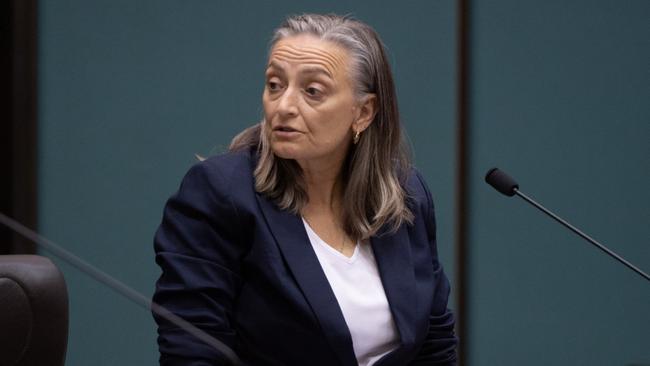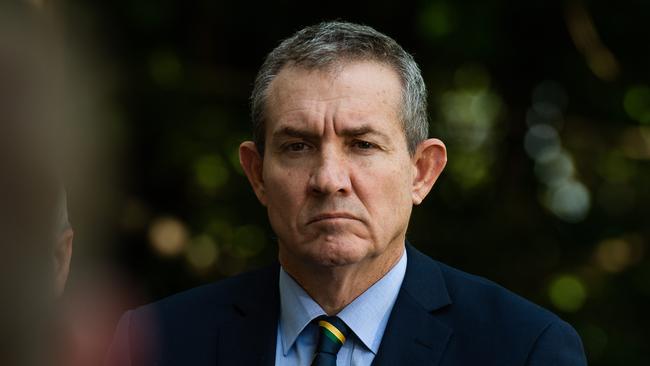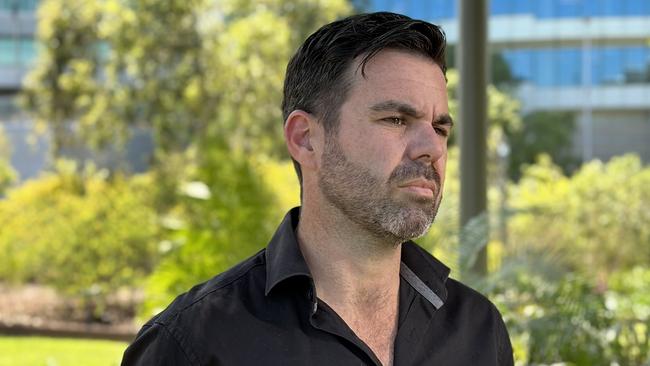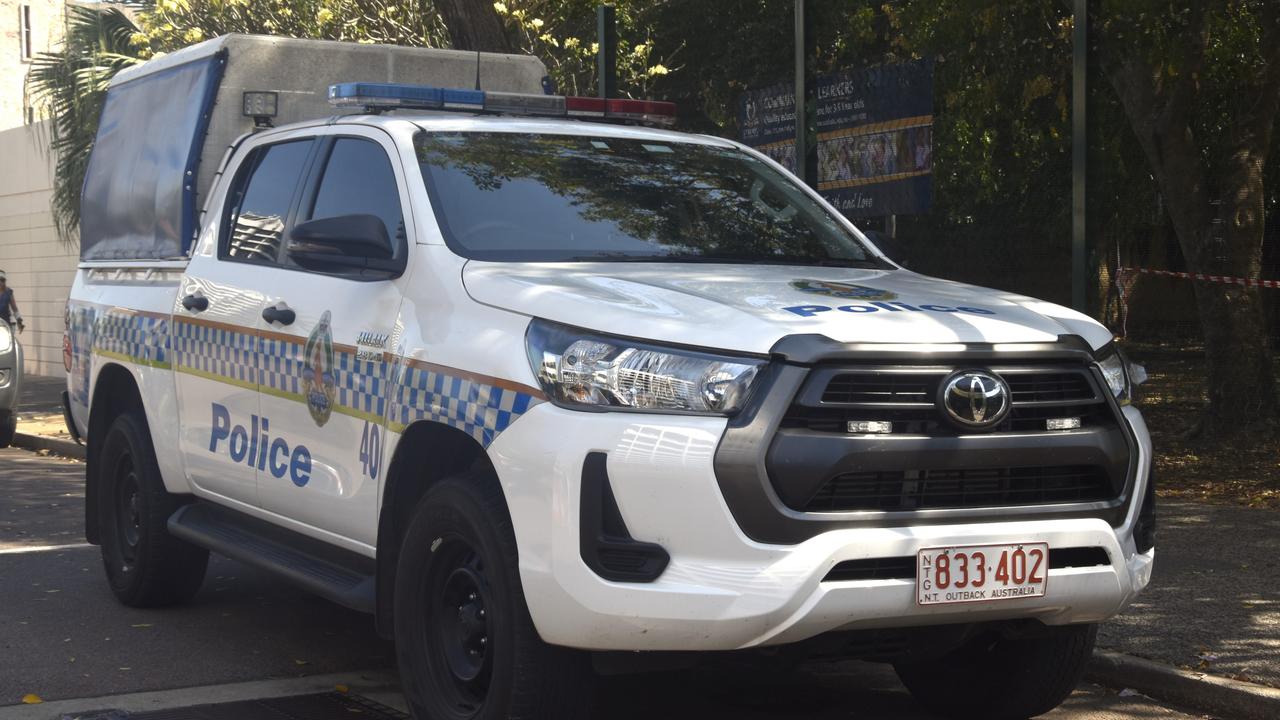NT government warns violence ‘will go up’ as DV action plan released amid funding shortfall
The NT government’s latest plan to reduce domestic violence has arrived with no new money, despite an inquest revealing the sector has about a quarter of the funding it needs.

Northern Territory
Don't miss out on the headlines from Northern Territory. Followed categories will be added to My News.
The Territory government has warned already skyrocketing rates of domestic violence “will go up” without more commonwealth funding despite committing no new money of its own.
A Coronial inquest last week heard an expert panel recommended the Domestic, Family and Sexual Violence Framework Action Plan get $180m over five years in line with modelling of an oncoming wave of violence, but instead the Territory government committed just $20m over two years in its latest budget.
However, on Wednesday Domestic, Family and Sexual Violence Minister Kate Worden warned the upwards trend would not be reversed until the commonwealth started funding the sector based on its need rather than population.
The rate of domestic and family violence-related homicides in the NT is seven times higher than the Australian average, yet Ms Worden said the Territory got just 1 per cent of national funding for the issue.

But Ms Worden said police and support services would work hand-in-hand with what they had as part of the Territory government’s latest plan to address the ongoing crisis.
The minister released the government’s second Domestic, Sexual and Family Violence Action plan on Wednesday, as part of a 10-year strategy including a range of measures such as a co-responder model trial in Alice Springs and an expansion of custody programs.
However it came with no new cash investment other than a two-year $20m commitment announced April, despite the inquest last week revealing the Territory government was about $26m per year short of funding the plan.
Internal government documents tendered at the inquest showed cabinet asked the Domestic, Family and Sexual Violence Interagency Coordination and Reform Office (IRCO) to prepare a whole-of-government budget submission in May last year to better understand the scale of the problem.
The expert group found $180m would be needed to properly fund domestic violence services over the next five years, which expert witness Chay Brown described as a “minimum”.
However, ultimately just $20m over two years was allocated to the DSFV plan in the latest budget.
On Wednesday, Ms Worden said the shortfall was due to the lack of needs-based funding from the federal government.
“Originally we did a very big broad mapping and the $180m figure was if we get absolutely everything, which is not possible here in the Northern Territory,” she said.
“We will never stop talking to the commonwealth about how we can get a bigger share.”

NT Council of Social Service senior policy officer Sophie Hantz said the need was “extraordinarily high”, with demand outstripping capacity.
“We need a co-ordinated response from prevention all the way through to healing,” she said.
“Our crisis services need bolstering and their resources – we know that the demand is greater than the capacity – and we also need education.
“We need to make sure that everybody on the front line is operating under the same framework so that we can adequately support people who are experiencing violence.”
It comes after state and territory leaders earlier this month agreed to a new national target to achieve a 25 per cent annual drop in the number of female victims of intimate partner homicide.
An average of three Territory women are killed by their current or former partner every year, with 79 domestic homicides since 2000.
Around 94 per cent of these women were Aboriginal.
Knife crime ‘strategy’ falls short of law reform
The Country Liberal Party has hit out at the government for not committing to any law reform upon the release of a new knife crime strategy.
Attorney-General Chansey Paech on Monday dropped the new strategy, which includes a range of measures over the next year including educational campaigns and better security around where knives are sold.
The strategy also includes de-escalation training with the retail and hospitality industry, which mirrors a promise the government made in March immediately after Declan Laverty’s death.
However details have remained scant on when and how the training will roll out, as well as who will fund it.
People sleeping rough often carry knives for personal protection and practical uses, according to the strategy, while there is limited data on how prevalent knives are among others in the community – a question the government hopes to answer once police begin using wanding powers in the coming weeks.
Deputy Opposition Leader Gerard Maley said he was “outraged” the strategy did not recommend any legislative changes.
“Territorians don’t want to be trained to deal with knife crime they want to live their life knowing they won’t be confronted with a knife,” he said.
“Labor’s answer is more security and de-escalation measures not less crime, and with no budget allocation it looks like once again its business picking up the tab.”

Mr Paech said the strategy was “by no means the answer” to solving crime but would remain agile to further recommendations.
“This strategy says prevention is the best option we have at tackling knife crime in the Territory,” he said.
“We are committed to working together with law enforcement agencies, the non-government sector, Aboriginal community-controlled organisations and businesses to build inclusive, empowered and safe communities.
“Everyone has a role to play in this and that’s absolutely what the strategy highlights today is working around developing those frameworks and working around those tangible outcomes.”
Mr Paech said police data showed knives and edged weapons make up only 5 per cent of violent crimes, half of which were domestic violence related.
However the strategy found that knife-related offending had risen 22 per cent in the twelve months from May last year, in line with an increase in overall offending.

“This echoes the calls from the Northern Territory government for needs-based funding to tackle domestic and family violence,” Mr Paech said.
“The commonwealth can fund all the national plans and all the information campaigns they want for hundreds of millions of dollars.
“We need that money here in the Territory, that money will absolutely change lives.
“The commonwealth cannot walk away from their responsibility in this space.”
Mr Maley said the government had chosen review over reform “once again”.
“10,000 of the 26,000 people that have signed Samara Laverty’s petition (did so) after the government ignored their calls for stronger bail, and today’s announcement will no doubt anger Territorians further,” he said.
“To every Territorian who wants to be safe I encourage you to come to parliament (Tuesday) at 10am”




